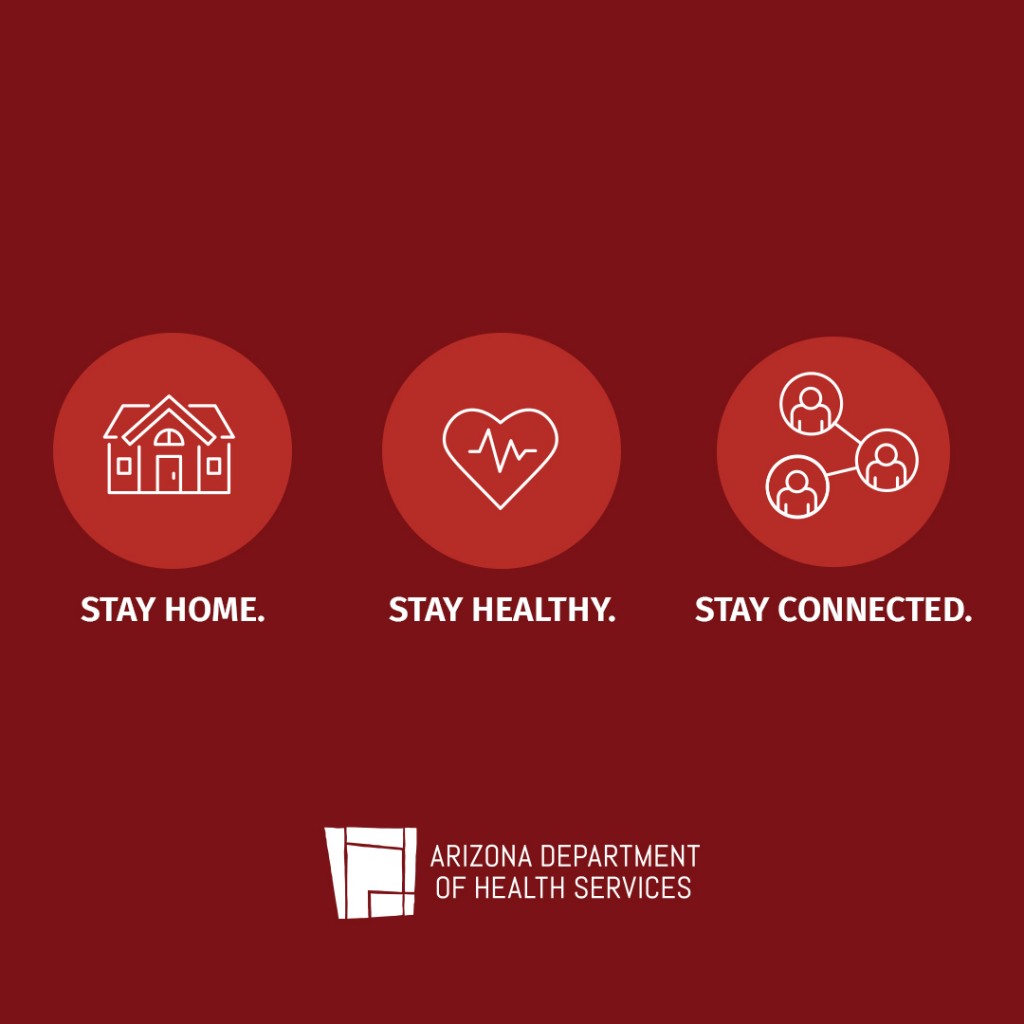 While it is possible for anyone to experience severe illness from the coronavirus (COVID-19), it is critical to point out that the groups at highest risk include individuals who are 65 years and older, and individuals who use tobacco or have underlying health conditions such as a disease of the heart, diabetes, asthma, cancer, or other chronic respiratory diseases. In Arizona one in seven people, 18 years and older, are living with one or more chronic conditions, including a chronic lung disease, diabetes, a disease of the heart, and/ or cancer (active or in remission). In Arizona, an estimated 75,000 people die each year as a result of chronic disease. This is why it is so important for everyone to follow the recommended public health guidelines.
While it is possible for anyone to experience severe illness from the coronavirus (COVID-19), it is critical to point out that the groups at highest risk include individuals who are 65 years and older, and individuals who use tobacco or have underlying health conditions such as a disease of the heart, diabetes, asthma, cancer, or other chronic respiratory diseases. In Arizona one in seven people, 18 years and older, are living with one or more chronic conditions, including a chronic lung disease, diabetes, a disease of the heart, and/ or cancer (active or in remission). In Arizona, an estimated 75,000 people die each year as a result of chronic disease. This is why it is so important for everyone to follow the recommended public health guidelines.
Stay Home. We know that those living with one or more chronic conditions are more vulnerable to the COVID-19. Staying home decreases your risk of coming into contact with the COVID-19. It is very important that those living with a chronic condition stay at home as often as possible, and only leave home for work or to get essential items, such as food, health care services, or medication. If you have to go to work, if possible, request from your employer the ability to work from home.
Stay Healthy. It is important during this time for individuals to continue managing their chronic conditions to stay healthy and lessen the burden on the health care system. This includes:
-
Washing your hands regularly for at least 20 seconds, especially before and after eating, touching your face, or returning home after being out in public. If soap and water are not available, use an alcohol-based hand sanitizer that is at least 60% alcohol.
-
Taking your prescription medications, as prescribed by your doctor, to manage your chronic condition.
-
Taking and writing down your blood pressure, and/ or blood sugar (A1C) readings for your next doctor’s appointment.
-
It’s now more important than ever to quit smoking or vaping. The act of smoking means that fingers (and possibly contaminated cigarettes) are in contact with lips, which increases the possibility of transmission of the virus from hand to mouth. For those who want to quit, call the Arizona Smokers’ Helpline (ASHLine) at 1-880-55-66-222. ASHLine quit coaches are available 24/7.
-
Keeping any scheduled doctor’s appointment. If it is cancelled, asking to reschedule the doctor’s appointment.
-
Seeking out additional support services through national or state organizations, such as the American Cancer Society, American Lung Association, Alzheimer’s Association, American Heart Association, American Diabetes Association, or the North American Quitline Consortium.
Stay Connected. While we are Staying Home and Staying Healthy, there are still many ways we can continue to stay connected and ensure physical distancing, including:
-
Re-connecting to or starting a new hobby, such as painting, learning a new language, and/ or listening to new music genres.
-
Staying physically active, while following physical distancing guidelines, by going on a leisurely walk around the neighborhood or the local city park, walking your pet, and/ or doing an online yoga class.
-
Learning and using mindfulness or meditation skills.
-
Talking with friends and family either on the phone, or trying virtual video chatting.
-
If you are experiencing persistent sadness, fear, or feelings of hopelessness that are impacting your daily activities, reach out for help. Call your healthcare provider or contact the Substance Abuse and Mental Health Services Administration Disaster Distress Helpline: 1-800-985-5990.
For more information, visit azhealth/covid19.gov or arizonatogether.org.









